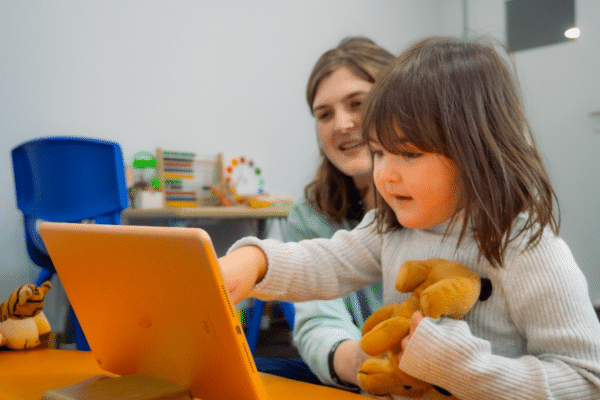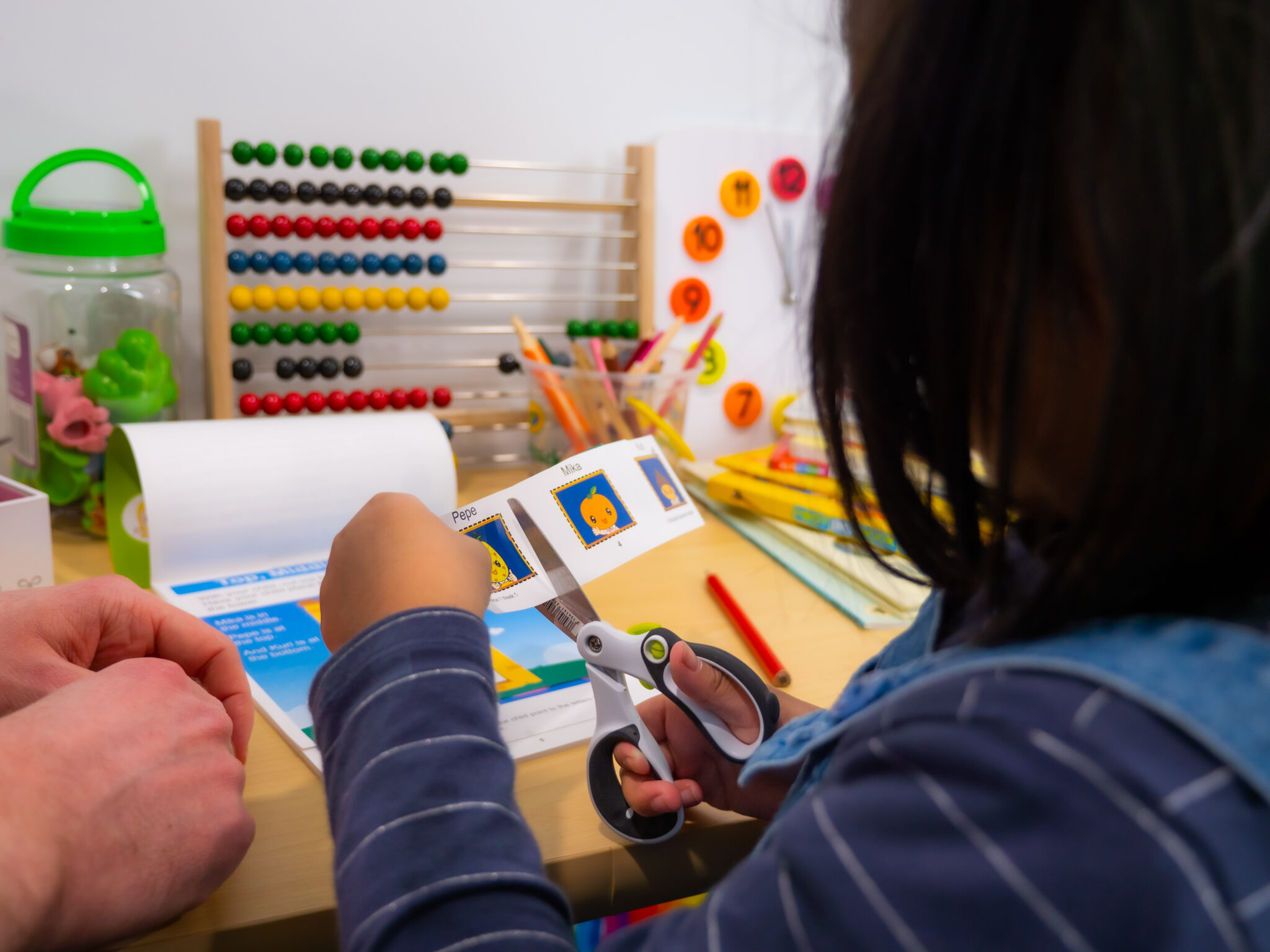Promoting Positive Screentime
Are you concerned about your child’s excessive screen time? Don’t despair! We have tips on how to make their digital activities more productive and beneficial.
As parents, we’re conditioned to think that screen time for children is a bad thing. However, as times change, the advance of technology has been seeing the steady increase of the use of computers and tablets in all facets of education, from university students all the way to even early-childhood education.
The fact of the matter is, computers are an integral part of everyone’s life, and banning all screen time just isn’t realistic. So how can we make it a positive screentime experience and create a healthy positive screen time culture for our children?
The many benefits of positive screen time
Screen time can benefit your child in many ways, as long as you choose the right on-screen activities. In fact, there are plenty of educational games and apps that can boost your child’s learning and foster new skills.
‘There’s a lot of really wonderful educational content online that encourages children to participate rather than just being a passive observer,’ says Bethany Koby, CEO and co-founder of Technology Will Save Us. ‘Many games and apps have been designed specifically to encourage thinking and questioning.’ Games such as Minecraft, for example, are great for helping children engage and interact with what they’re viewing.
Improved cognitive development
A recent study was conducted to see the effect of the educational children’s program Blues Clues on young minds.
Blue’s Clues is a TV show for preschoolers that teaches important critical thinking and problem-solving skills. Recent studies show that kids who watched the show were more engaged, talkative, and interactive as they learned from the program. These skills even carried over to other TV shows! In fact, a long-term study comparing children who watched Blue’s Clues to those who hadn’t found that the show had a positive impact on cognitive development. This study shows that screen time, when utilized in the right way, can have a positive effect on young minds.
Technology builds confidence
As children get older, the internet not only offers limitless knowledge for children when it comes to their learning, but also helps nurture important skills like research and coding. Mastering search engines is essential for exploring the online world, analyzing information reliability, and digging deeper into subjects. Moreover, children can now learn how to code and become creators themselves, rather than mere computer operators who use programs like Microsoft Word. As their tech savviness grows, so does their self-esteem, as they gain the confidence to share their newfound knowledge and skills with others.
How to make a positive screen time
The most important component of positive screentime is interactivity. It’s important that the content that our children are absorbing via the screen is not passive, but rather actively encourages children to participate in what is happening on the screen.
For example, Shichida At Home offers video lessons that are full of interactivity – children are encouraged to dance and sing along to the songs, point to the screen and perform the activities with Emma and Shichi, and even follow along with the physical exercises and motor skills activities. By using activities that require the children to participate actively and utilizing the added support of mum and dad in participating in the activities, we are eliminating the risk of your child becoming a passive audience member.
Check out how Shichida At Home can help develop your child’s cognitive ability from the comfort of your home, all while facilitating that all-important bond between parent and child.
How to encourage kids to be active participants
As your child grows older and they start relying more and more on computers as the basis for their education, you may start to wonder how you can make sure that they are actively participating in their screen-based learning.
However, as your child grows older, their curiosity and skills will also deepen, creating opportunities that you can utilize to ensure they are always an active participant.
Try some of these ideas for screen-based activities that can engage your child:
- Use educational apps and tools such as Shichida At Home to engage your child actively as they learn new skills
- Encourage your child to dance and sing along to the songs that they are watching. This will help stimulate their auditory memorization ability
- Utilize videos and online resources that combine screen time with a physical activity. This could mean using a YouTube video to learn a new skill, such as playing the guitar for example
- Ask your child a big question, such as “How do bees make honey?” and have your child research answers to this question. Target your child’s field of interest for maximum engagement
- Start an online blog for your child where you can work together to write down the events of their day
- Try to nurture an interest in coding or world-building, using online apps and learning tools designed for children
- Edit a photo together or create a painting online using digital art software
- Read a book online with your child – this is just as effective as reading a physical book together!
All these activities not only ensure that your child is actively participating in their online learning, but they are also all activities that you can join them in, to help support and nurture their interest.
How to best support your child’s online learning
As Covid has taught us, online learning can be challenging. Various challenges may arise as children make the transition between face-to-face classes and online learning. Internet connectivity issues, limited resources, lack of space, and the difficulty of juggling online learning for multiple siblings are all barriers that need to be overcome to ensure your child is able to learn effectively in an online learning environment.
At various stages of their life, your child may come up against difficulties when participating in online learning.
Make sure your child is supported with these useful tips:
- For young children, online learning can be effective in vastly improving cognitive function. To help your child thrive, consider complementing their virtual lessons with hands-on activities like reading, art projects, and language practice through conversation. Give them the well-rounded education they need to succeed.
- Creating a personalized space for their online learning is important in establishing a routine and structure to their learning, while at the same time making them excited to be able to learn from the screen! Put up colourful educational posters to help foster learning. Decorate their space with the artwork that they have created through the course of their online learning. Shichida At Home offers many activities that require children to colour and draw. Make the space comfortable and separate from potential distractors like non-educational toys.
Check out how Shichida At Home can help develop your child’s cognitive ability from the comfort of your home, all while facilitating that all-important bond between parent and child. Try your FREE TRIAL today!
- Being an active listener and asking your child questions about their learning can help keep them interested, engaged, and make them feel a sense of accomplishment. Be there for them, encouraging them to take breaks frequently and offering ongoing support.
Don’t use screens as a babysitter
Screen time can be a positive experience for children if they are actively engaged in creating and exploring rather than just watching. In addition to this, it’s crucial to interact with them during this time. As parents, we tend to use screens as a babysitter, but we should take the opportunity to engage with our children and learn together. We should spend some time watching and discussing their online activities, ask them questions, and help them with their projects. This way, we can foster a closer relationship with our children and encourage their learning.
Create a strong family bond and promote positive communication by being a good listener, establishing safe spaces for conversations, and offering emotional support. This will not only help manage stress, but also encourage children to communicate openly with parents about both positive and challenging emotions.
Improve your child’s mental health by implementing these simple yet effective strategies:
- Show empathy and provide guidance by actively listening
- Be there for someone in need – offer emotional support and care
- Get valuable parenting advice from fellow parents and empower your kids to seek support from their friends.
- Give compliments for efforts and achievements
- Avoid applying pressure to your child
- Teach kids to embrace situations beyond their control and understand their emotions
- Lead with positivity and set an example by displaying responsible and respectful behavior. Additionally, show your adaptability to effectively manage your work from home.
Screen time as a distraction is okay (in small doses)
Screen time doesn’t always have to be purely educational. There’s room for content that allows kids to unwind and escape reality. However, it’s best to limit this kind of passive screen time. If you encourage your child to participate in more interactive and engaging screen time, you can help them exercise their brain and develop skills that could lead to a future in technology.
Check out how Shichida At Home can help develop your child’s cognitive ability from the comfort of your home, all while facilitating that all-important bond between parent and child.
Reference list
Anderson, D.R., Bryant, J., Wilder, A., Santomero, A., Williams, M. and Crawley, A.M. (2000). Researching Blue’s Clues: Viewing Behavior and Impact. Media Psychology, 2(2), pp.179–194. doi:https://doi.org/10.1207/s1532785xmep0202_4.
Wongprasert, T. (n.d.). How parents can support children’s online learning. [online] www.unicef.org. Available at: https://www.unicef.org/thailand/how-parents-can-support-childrens-online-learning.
www.theschoolrun.com. (n.d.). Positive screen time for children | TheSchoolRun. [online] Available at: https://www.theschoolrun.com/positive-screen-time-children.







